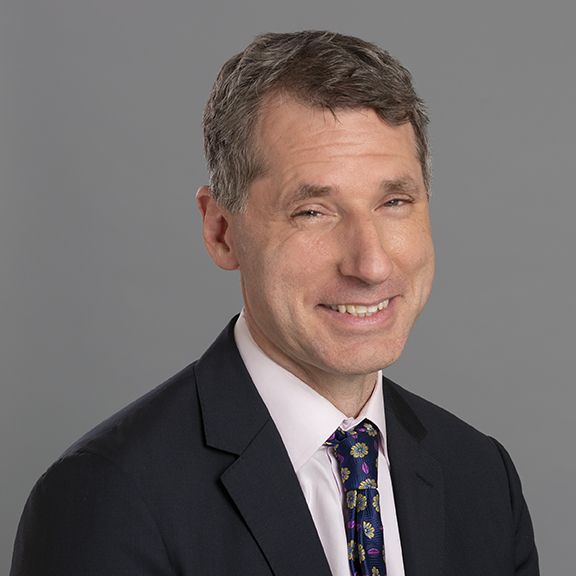
This article appeared in the 2023 edition of Cardozo Life magazine.
Professor Alexander Reinert has seen his work bring about major changes in prison and jail conditions in New York City and New York State many times. In April 2023, he was co-counsel with lawyers of Cuti Hecker Wang LLP in a historic settlement in Miller v. City of New York, which involved detainees held in restrictive isolation at two jails on Rikers Island and one unit at what was then the Manhattan Detention Complex.
“I started working on this case when it was filed, in 2021,” said Reinert, who specializes in civil procedure, civil rights laws and the rights of prisoners and detainees and serves as the director of Cardozo’s Center for Rights and Justice.
“We became aware of this practice, and we wanted to challenge it for a variety of reasons, most importantly because it seemed to us to be an end-run around restrictions on the use of solitary confinement,” said Reinert, who has worked, via litigation and other advocacy, to restrict and regulate the use of solitary confinement in prisons and jails in New York State.
As a result of the settlement in Miller, the City of New York will pay as much as $53 million to 4,413 people who were held in harsh, isolated conditions at Rikers Island and Manhattan jails between 2018 to 2022. The average payout is expected to be $9,000.
The class-action lawsuit filed by former detainees alleged that the City Department of Correction violated city regulations and the U.S. Constitution, holding them in cells and cages for 23 hours a day where they lacked access to natural light, community gatherings and the kinds of pro- grams, such as educational classes, available to other detainees.
Speaking to Spectrum News in late April, Reinert said the city was “trying to get around restrictions on the use of solitary confinement that were imposed by the New York City Board of Corrections starting in 2015.”
“They weren’t just held in conditions in which they were in small cells in which there wasn’t access to natural light,” Reinert said. “They were held in cages for 23 out of 24 hours a day in many cases. It was extremely harsh treatment.”
As reported by The New York Times in 2020, union leaders who represent correction officers said punitive segregation protects officers and incarcerated individuals from those who may become violent.
Reinert said that “there is no question that sometimes people need to be isolated to protect staff and other detainees.” However, he added that these people are entitled to a hearing before restrictions are imposed. This ensures that someone is being put into restrictive conditions properly and for the right reasons.
Reinert said the detainees were not afforded due process before being punished by being placed in isolated conditions. They were not told how long they would be in solitary confinement. According to Reinert, indefinite detention in isolated conditions is a major factor in the mental deterioration of incarcerated people. Reinert believes there is no question that the officials knew what they were doing.
The cases Reinert worked on have led to a significant decrease in the use of solitary confinement in New York State prisons as well as decreases in the length of time people are kept in solitary confinement. Legislation enacted in New York has put even greater restrictions on the use of solitary. That legislation came into effect in March 2023, but there are questions about how effective it has been.
For meaningful long-term change, Reinert advocates more drastic action.
“I think Rikers has to be closed in order to fundamentally change the conditions for people incarcerated in the city jails,” he said.
Reinert noted that the recent changes have come about through a combination of legal cases and “lots of advocacy by families of incarcerated people and other advocates for incarcerated people.”
While he said that restrictions on solitary confinement have emerged, conditions in prisons and jails are still very poor, and that despite a push for changes, “most experiences for incarcerated people are dehumanizing.”
Reinert said fewer people should be placed in prisons and jails for less time. Those who work in these facilities, he added, must understand that their primary job is to create a safe and humane environment.
“There also have to be more opportunities for incarcerated people to engage with their communities and families and more opportunity for pro-social and educational programming,” he said.
Reinert, who writes extensively about prisons, said his litigation experience and his scholarship inform his teaching.
“My teaching is informed by my practice experience, but the expertise I develop through teaching also informs my practice—there are some cases where my expertise in procedure is essential to achieving a good outcome in the litigation,” he said. “And of course, the same is true of my scholarship—some of it is informed by my practice and teaching, some of it isn’t, and the work I do as a scholar certainly influences what I do as a teacher and practitioner.”
